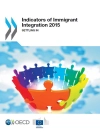Cross-Cultural Management: Essential Concepts, Fourth Edition introduces readers to the fundamentals of cross-cultural management by exploring the influence of culture on interpersonal interactions in organizational settings and examining the ever-increasing number of cross-cultural management challenges that global managers face in today’s workplace. Instead of taking a country specific approach, authors David C. Thomas and Mark F. Peterson offer a predominantly psychological perspective—focusing on the interactions of people from different cultures in organizational settings. This approach shows readers the effects culture has on a wide variety of cross-cultural interactions across organizational contexts.
Содержание
PART I: MANAGEMENT AND CULTURE
Chapter 1: Introduction: The Challenging Role of the Global Manager
Globalization
What Global Managers Do
Evaluating Cross-Cultural Management Studies
Summary
Questions for Discussion
Chapter 2: Describing Culture: What It Is and Where It Comes From
Features of Culture
Culture: A Working Definition
Why Cultures Differ and Persist
Debates Surrounding the Concept of Culture
Culture and Social Groups
Summary
Questions for Discussion
Chapter 3: Comparing Cultures: Systematically Describing Cultural Differences
Kluckhohn and Strodtbeck Framework
Hofstede’s Study
Schwartz Value Survey
Trompenaars’s Dimensions
The GLOBE Study
Individualism and Collectivism
Social Axioms
Culture as Sources of Guidance
Cultural Distance
Limitations of Country Culture Research
Use of the Frameworks
Summary
Questions for Discussion
Chapter 4: How Culture Works: Fundamentals of Cross-Cultural Interaction
Social Cognition
Cultural Schemas
Cultural Scripts and Norms
Selective Perception
Perceived Similarity and Attraction
Stereotypic Expectations
Differential Attributions
Cross-Cultural Interaction Model
Self-Schemas and Motivation
Summary
Questions for Discussion
PART II: ROLES OF THE GLOBAL MANAGER
Chapter 5: The Manager as Decision Maker: Cross-Cultural Dimensions of Decision-Making
Rational Decision-Making
Cultural Differences in the Optimization Model
Limits to Rationality
Cultural Constraints on Rationality
Heuristics
Motivational Biases in Decision-Making
Selection and Reward Allocation Decisions
Ethical Dilemmas in Decision-Making
Summary
Questions for Discussion
Chapter 6: The Manager as Negotiator: Communicating and Negotiating Across Cultures
Cross-Cultural Communication Process
Language
Communication Styles
Other Language Considerations
Language Pragmatics
Nonverbal Communication
Negotiation and Conflict Resolution Across Cultures
Summary
Questions for Discussion
Chapter 7: The Manager as Leader: Motivation and Leadership across Cultures
Motivation Across Cultures
Work Goals
Work Centrality and Organizational Commitment
Designing Motivating Jobs
Leadership
Western Leadership Theory
Non-Western Theories of Leadership
Integrated Cross-Cultural Model of Leadership
Implications for the Practice of Leadership
Summary
Questions for Discussion
PART III: GLOBAL MANAGEMENT CHALLENGES
Chapter 8: The Challenge of Multicultural Work Groups and Teams
Work Groups
Work Group Effectiveness
Culture’s Influence on Work Groups
Culture’s Effect in Different Group Structures and Tasks
Global Virtual Teams
Organizational Context and Culturally Diverse Work Groups
Managing Multicultural Work Groups
Summary
Questions for Discussion
Chapter 9: The Challenge of International Organizations: Structure and Culture
Organizations
Organizational Designs
Culture and Organizational Structure
Informal Organization
Organizing in Multinational Organizations
Relationship of the MNO to Its Members
Summary
Questions for Discussion
Chapter 10: The Challenge of International Assignments
The Role of Expatriates
Individual Staffing Decisions
Definitions of Success
Adjustment–Performance Relationship
Factors Affecting Expatriate Success
Repatriation
Outcomes of Overseas Assignments and Global Careers
Summary
Questions for Discussion
Chapter 11: The Challenge of Managing Across Cultures in the Future
The Changing Environment of Business
The Adaptation of Organizations and People
The Development of Global Managers
Summary
Questions for Discussion
References
Name Index
Subject Index
Subject Index
Об авторе
Mark F. Peterson (Ph D, University of Michigan) holds the Hofstede Chair in Cultural Diversity at Maastricht University. He has published over 120 articles and chapters, and several books. The articles have appeared in major management and international management journals such as Administrative Science Quarterly, the Academy of Management Journal, the Journal of International Business Studies, the Journal of Organizational Behavior, Leadership Quarterly, Human Relations, Management International Review, Organization Studies, and Organization Science. He has also contributed international management themes to the basic social science literature through chapters in the Annual Review of Psychology, the Communication Yearbook, the Handbook of Industrial and Organizational Psychology, and Research in the Sociology of Organizations. He is an Associate Editor for the Journal of Organizational Behavior and an Area Editor for the Journal of International Business Studies. His previous positions have been at Wayne State University, the University of Miami, Texas Tech University, and Florida Atlantic University. He has had visiting positions supported by Fulbright Fellowships to Osaka University and Mc Master University, and he held the John R. Galvin Chair at the Fletcher School of Law and Diplomacy at Tufts University. He has also had visiting positions at the University of Pennsylvania and Aarhus University. Along with Mikael Soendergaard, Geert Hofstede, Michael Minkov, Gert Jan Hofstede, and others, he teaches an annual summer Ph.D. master class in cross cultural management at various locations in Europe. When at his home in Homestead, Florida, he spends his weekends tending to a collection of orchids and making orchid hybrids.












